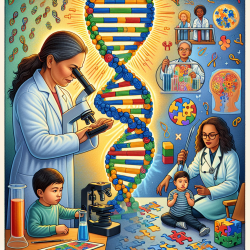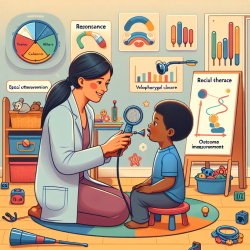Introduction
In the realm of speech-language pathology, especially within the context of online therapy services like those offered by TinyEYE, the integration of cutting-edge research is crucial for enhancing therapeutic outcomes. The study titled Good Scientific Practice in EEG and MEG Research: Progress and Perspectives provides valuable insights that can be leveraged to improve the efficacy of online therapy interventions.
Understanding Good Scientific Practice (GSP)
Good Scientific Practice (GSP) refers to a set of guidelines and standards that ensure research is conducted with integrity, reliability, and transparency. In the context of EEG (Electroencephalography) and MEG (Magnetoencephalography) research, GSP encompasses technical competence, data acquisition, analysis, reporting, and sharing. The research emphasizes the importance of cognitive biases, logical fallacies, and the need for pre-registration to avoid early pitfalls in research.
Implementing GSP in Online Therapy
For practitioners in online therapy, particularly those working with children, integrating GSP can significantly enhance the quality of interventions. Here are some actionable steps:
- Data-Driven Decision Making: Utilize EEG and MEG data to tailor therapy sessions based on the child's unique neurological profile. This approach ensures that interventions are personalized and effective.
- Pre-Registration of Interventions: Document and pre-register therapy plans to increase transparency and accountability. This practice aligns with the research's emphasis on avoiding biases and enhancing reproducibility.
- Collaborative Research and Sharing: Engage in collaborative research efforts to share findings and best practices. This not only fosters a community of learning but also accelerates the development of innovative therapeutic techniques.
Encouraging Further Research
The study highlights the importance of continuous learning and adaptation in research practices. Practitioners are encouraged to delve deeper into the nuances of EEG and MEG research to further refine their therapeutic approaches. By staying informed about the latest advancements, therapists can offer cutting-edge interventions that are both scientifically sound and highly effective.
Conclusion
Incorporating the principles of Good Scientific Practice into online therapy services can transform the way speech-language pathology is delivered, particularly in the context of remote interventions. By embracing data-driven decisions, pre-registration, and collaborative research, practitioners can enhance the therapeutic outcomes for children, ultimately leading to more successful communication and learning experiences.
To read the original research paper, please follow this link: Good scientific practice in EEG and MEG research: Progress and perspectives.










